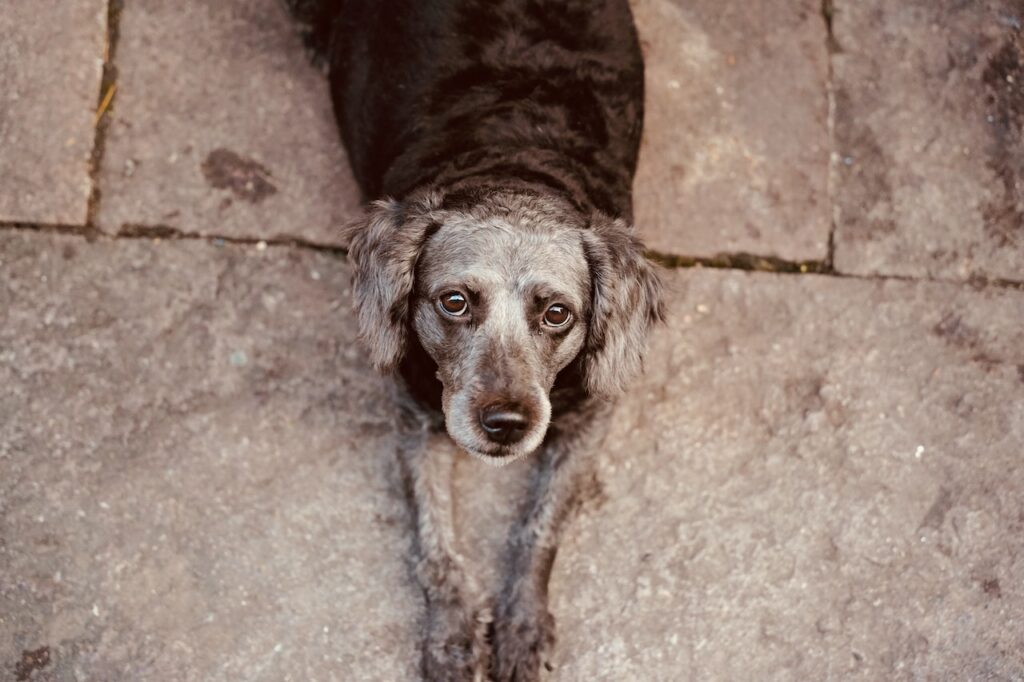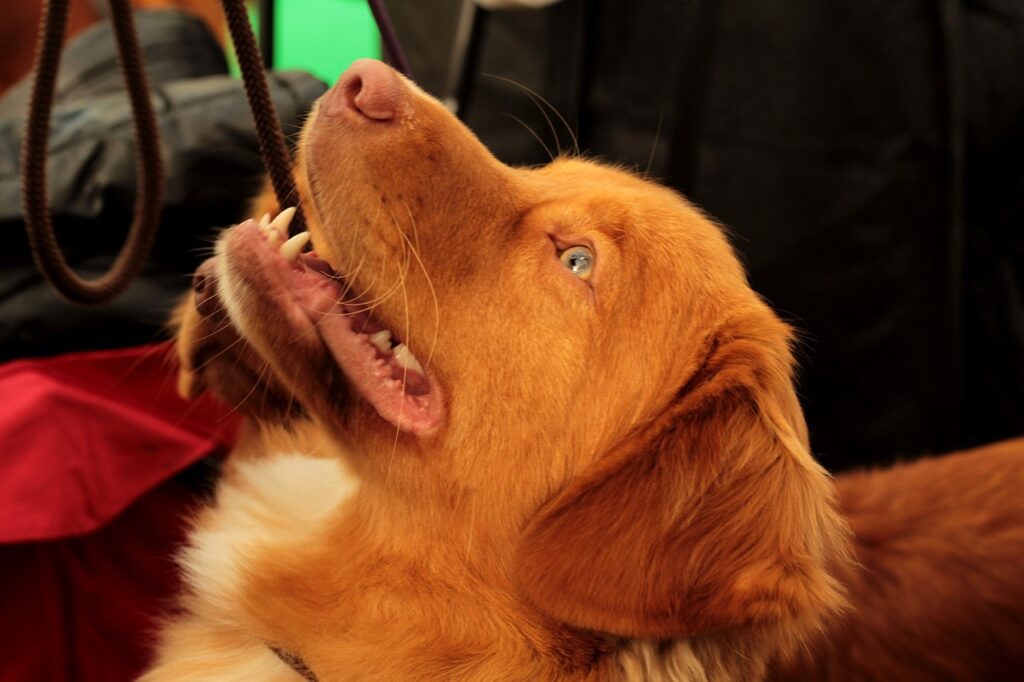Gaining back a dog’s trust after accidentally kicking them is a process that requires patience, compassion, and understanding.
It’s a situation no pet owner wants to find themselves in, but accidents do happen. Dogs are incredibly resilient and forgiving creatures, but they also remember negative experiences.
- Key Takeaway
- Do Dogs Understand If You Accidentally Hurt Them?
- How To Gain Back a Dog’s Trust After Accidentally Kicking Them?
- Do Dogs Forgive If You Accidentally Hurt Them?
- How Do I Apologize To My Dog After Hitting Him?
- How Long Does It Take For a Dog To Regain Trust?
- FAQs
- Q: Do dogs hold grudges?
- Q: What are the warning signs that my dog is still scared or fearful?
- Q: How can I show my dog that I am sorry for accidentally hurting them?
- Q: Should I take my dog to the veterinarian after accidentally hurting them?
- Q: How can I gain back my dog’s trust?
- Q: How long does it take for a dog to trust me again after I accidentally hurt them?
- Q: Can positive reinforcement help my dog recover trust?
- Q: What should I do if my dog flinches or acts fearful around me?
- Q: How can I build trust with my dog?
- In Conclusion
Key Takeaway
- Dogs can understand to some degree if you accidentally hurt them, as they can distinguish between deliberate and accidental actions based on your body language, facial expressions, and subsequent behavior.
- Regaining a dog’s trust after accidentally kicking them involves giving them space, using positive reinforcement consistently, showing respect, engaging in trust-building activities like play and walks, and possibly seeking the help of a professional trainer if needed.
Do Dogs Understand If You Accidentally Hurt Them?

Dogs have a certain level of understanding when their owners accidentally hurt them.
They primarily gauge this through body language and facial expressions, which can communicate to them whether the harm was intentional or accidental.
Dogs are also believed to differentiate between deliberate acts and accidents, as shown in studies.
However, if dogs accidentally hurt their owners, they do not inherently understand the concept of harm.
Any perceived remorse or shame is typically a reaction to the owner’s response.
How To Gain Back a Dog’s Trust After Accidentally Kicking Them?

- Immediately apologize to your dog in a calm and soothing voice after accidentally hurting them.
- Provide your dog with space to calm down if they seem scared or anxious.
- Offer treats as a gesture of goodwill, but do not force it on them.
- Engage in positive activities like playing their favorite game or grooming.
- Maintain consistent behavior that shows kindness and love towards your dog.
- Be patient and give your dog time to rebuild trust.
Step 1: Apologize Immediately
After accidentally hurting your dog, immediately apologize in a soothing and calm voice. Dogs may not understand human language, but they can pick up on tone and mood. Your calmness can help to reassure them.
Step 2: Give Them Space
If your dog appears scared or anxious, give them some space. Allow them to retreat to a safe place if they wish. This step is about respecting their feelings and giving them time to calm down.
Step 3: Offer Treats
Treats are a great way to rebuild trust with your dog. The key here is not to force the treat on them. Simply present it and allow them to come to you when they’re ready.
Step 4: Engage in Positive Interaction
Once your dog has calmed down, engage in positive interaction. This could involve playing their favorite game, grooming them, or simply sitting with them. Positive interaction can help to reinforce that you’re not a threat.
Step 5: Consistent Behavior
Consistency is key when trying to regain your dog’s trust. Make sure to consistently show kindness and love towards your dog. Avoid any behaviors that previously scared them.
Step 6: Patience
Lastly, be patient. Trust takes time to rebuild, especially if the dog was really frightened. With time, your dog will learn that the incident was a one-off and not something to fear in the future.
Do Dogs Forgive If You Accidentally Hurt Them?
Yes, dogs do forgive their owners if they accidentally hurt them. Dogs are capable of remembering negative incidents that caused them harm but they differentiate between accidental and intentional harm.
They are likely to assume there was no ill will behind it if the harm was accidental and you remain calm.
However, repeated harsh treatment can negatively affect your bond with them as they remember the pain and the anger.
It’s also important to note that while dogs may remember incidents where they were hurt, they don’t hold grudges in the way humans do.
Trust can be regained by immediately apologizing in a soothing voice, giving them space, offering treats, engaging in positive interactions, maintaining consistent kind behavior, and being patient.
How Do I Apologize To My Dog After Hitting Him?
If you’ve accidentally hurt your dog, it’s important to apologize to them in a sincere and genuine manner. Start by calming down and using a soft, soothing tone of voice.
Dogs can pick up on their owner’s body language and mood, so ensure that your demeanor is apologetic and comforting.
Speak to them gently, using slightly high-pitched tones that we often use when expressing affection towards pets. You might say something like, “You’re okay,” to reassure them.
Offering treats and pets can also help, but only if they are comfortable with it. Remember not to force any interaction – if they want space, give it to them.
Consistency in showing kindness and love after the incident will help rebuild trust.
How Long Does It Take For a Dog To Regain Trust?
For dogs that have been severely scared or traumatized, it might even take up to three to six months to fully settle into a new environment and trust their owners.
It’s important to note that consistency in showing kindness, engaging in trust-building activities, and providing a safe space is crucial in regaining a dog’s trust.
In some cases, teaching basic obedience commands using positive reinforcement techniques can also help. Remember, patience is key in this process.
FAQs
Q: Do dogs hold grudges?
A: While dogs are forgiving creatures, they are also able to remember negative experiences. If you accidentally hurt your dog, they might initially be fearful or reluctant around you. However, with time, patience, and positive reinforcement, most dogs can learn to trust again.
Q: What are the warning signs that my dog is still scared or fearful?
A: If your dog is still scared or fearful after being accidentally hurt, they may display various warning signs. These can include cowering, hiding, trembling, avoiding eye contact, growling, or even snapping. It’s important to recognize these signs so you can adjust your behavior accordingly.
Q: How can I show my dog that I am sorry for accidentally hurting them?
A: One way to show your dog that you are sorry for accidentally hurting them is by offering comfort without overwhelming them. You can try speaking to your dog in a calm and soothing tone, offering gentle pats, or giving them their favorite treats. It’s important to avoid raising your voice or behaving aggressively towards your dog during this time.
Q: Should I take my dog to the veterinarian after accidentally hurting them?
A: If you accidentally hurt your dog and they are displaying signs of pain or discomfort, it is best to consult with a veterinarian. They will be able to assess your dog’s condition and provide any necessary treatment or pain relief. It’s always better to err on the side of caution when it comes to your pet’s well-being.
Q: How can I gain back my dog’s trust?
A: To gain back your dog’s trust, it’s important to spend quality time with them, engage in positive reinforcement training, and be consistent in your actions and behavior towards them. Show your dog that you are a reliable and caring companion by being patient, understanding, and attentive to their needs.
Q: How long does it take for a dog to trust me again after I accidentally hurt them?
A: The amount of time it takes for a dog to trust you again after you accidentally hurt them can vary. Some dogs may bounce back quickly, while others may take longer to process and overcome the negative experience. It’s crucial to be patient and give your dog the time they need to heal emotionally.
Q: Can positive reinforcement help my dog recover trust?
A: Yes, positive reinforcement is an effective way to help your dog recover trust. By rewarding your dog for positive behavior and using gentle, consistent training methods, you can reinforce a positive and trusting relationship with your furry friend.
Q: What should I do if my dog flinches or acts fearful around me?
A: If your dog flinches or acts fearful around you after accidentally hurting them, it’s important to give them space and avoid forcing interaction. Instead, focus on creating a calm and positive environment for your dog and gradually reintroduce activities that they enjoy, always making sure to respect their boundaries.
Q: How can I build trust with my dog?
A: Building trust with your dog requires time, patience, and consistency. Spend quality time with your dog, engage in positive reinforcement training, and be a reliable and consistent caregiver. By creating a safe and loving environment, you can nurture a strong bond and regain your dog’s trust.
In Conclusion
In conclusion, gaining back a dog’s trust after accidentally kicking them requires an empathetic and patient approach.
Consistently demonstrating kindness, gentleness, and respect towards your dog is paramount.
Positive reinforcement, giving them space, and not forcing interaction can significantly help in rebuilding the bond.





Leave a Reply